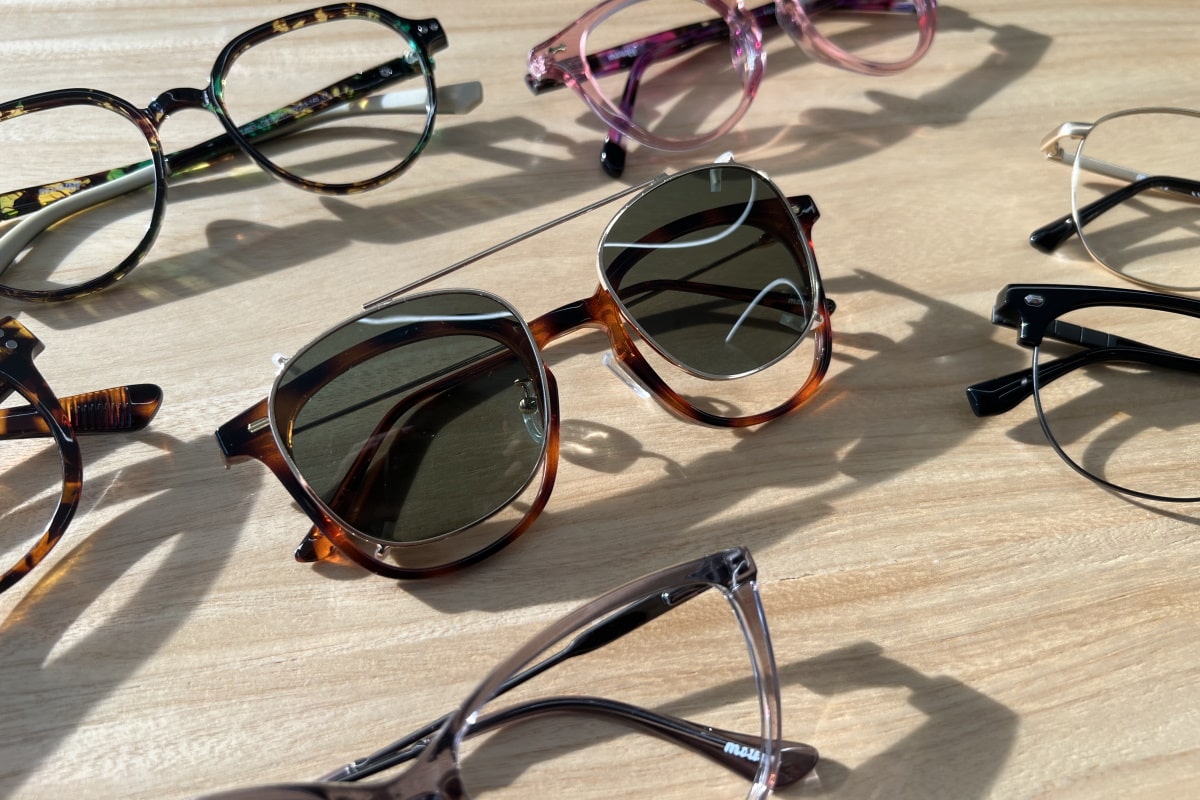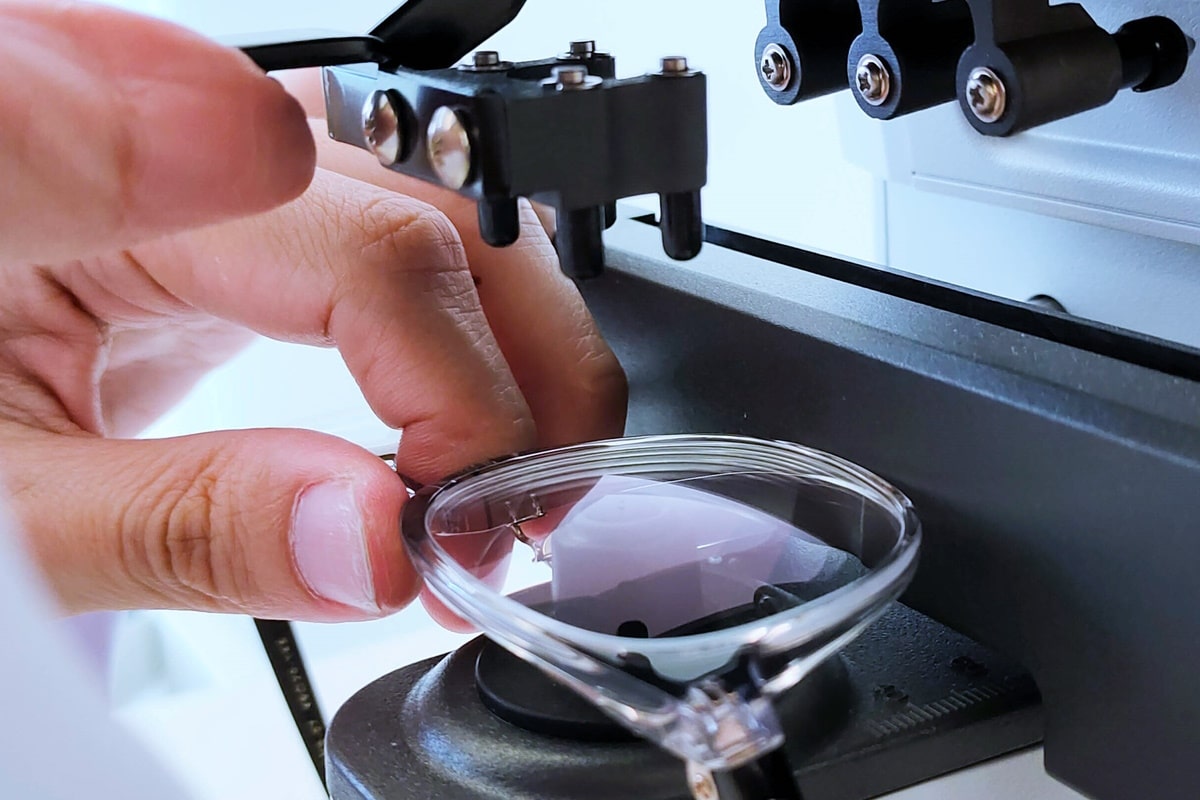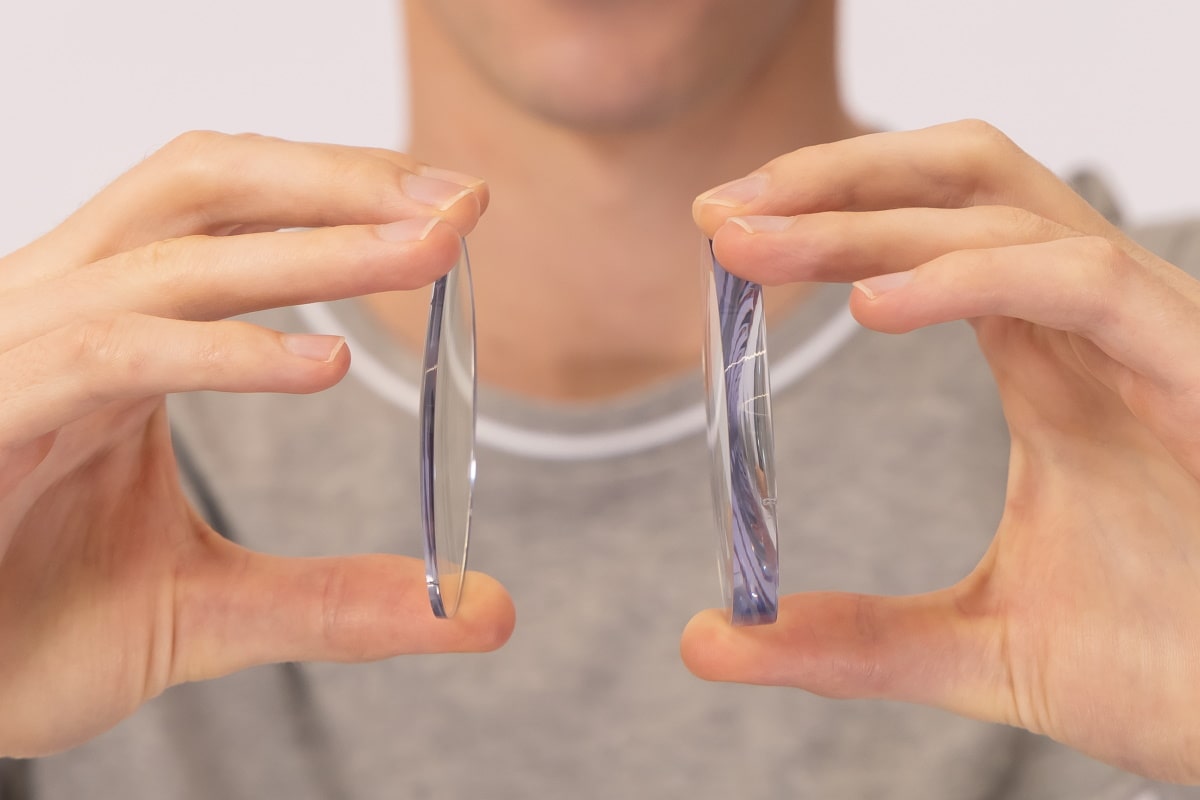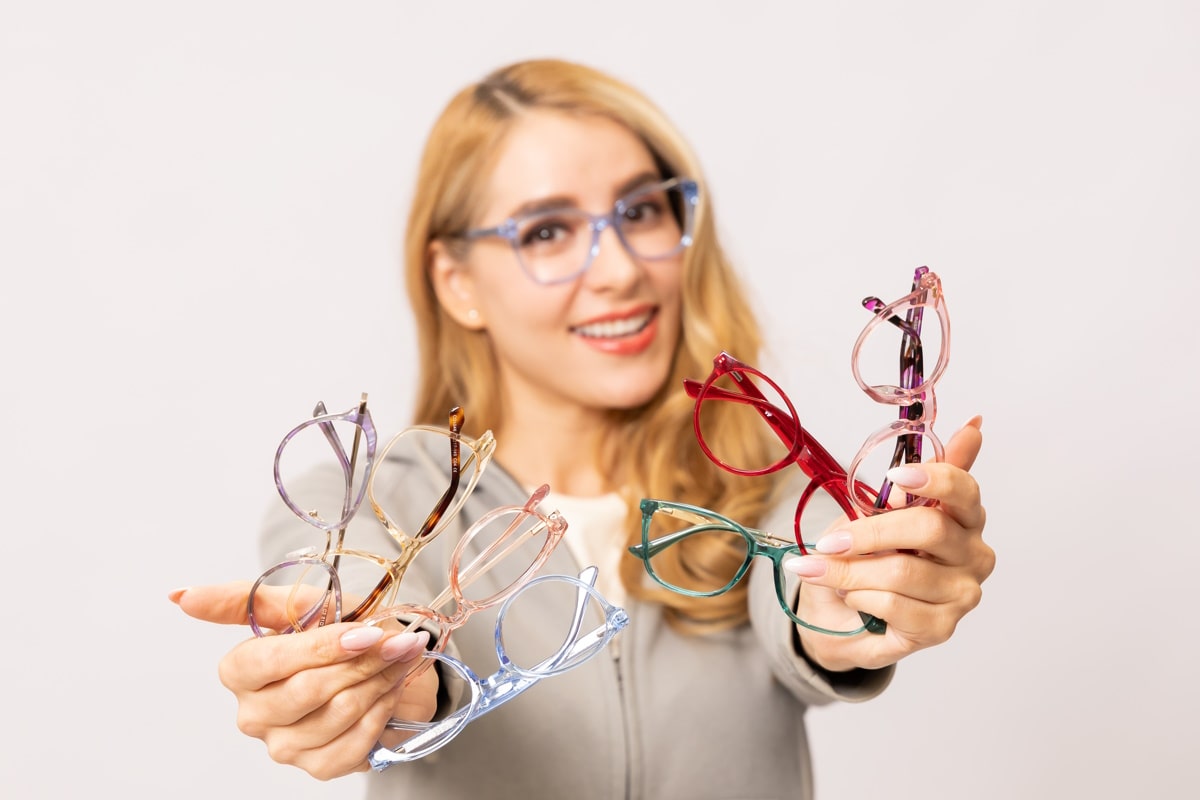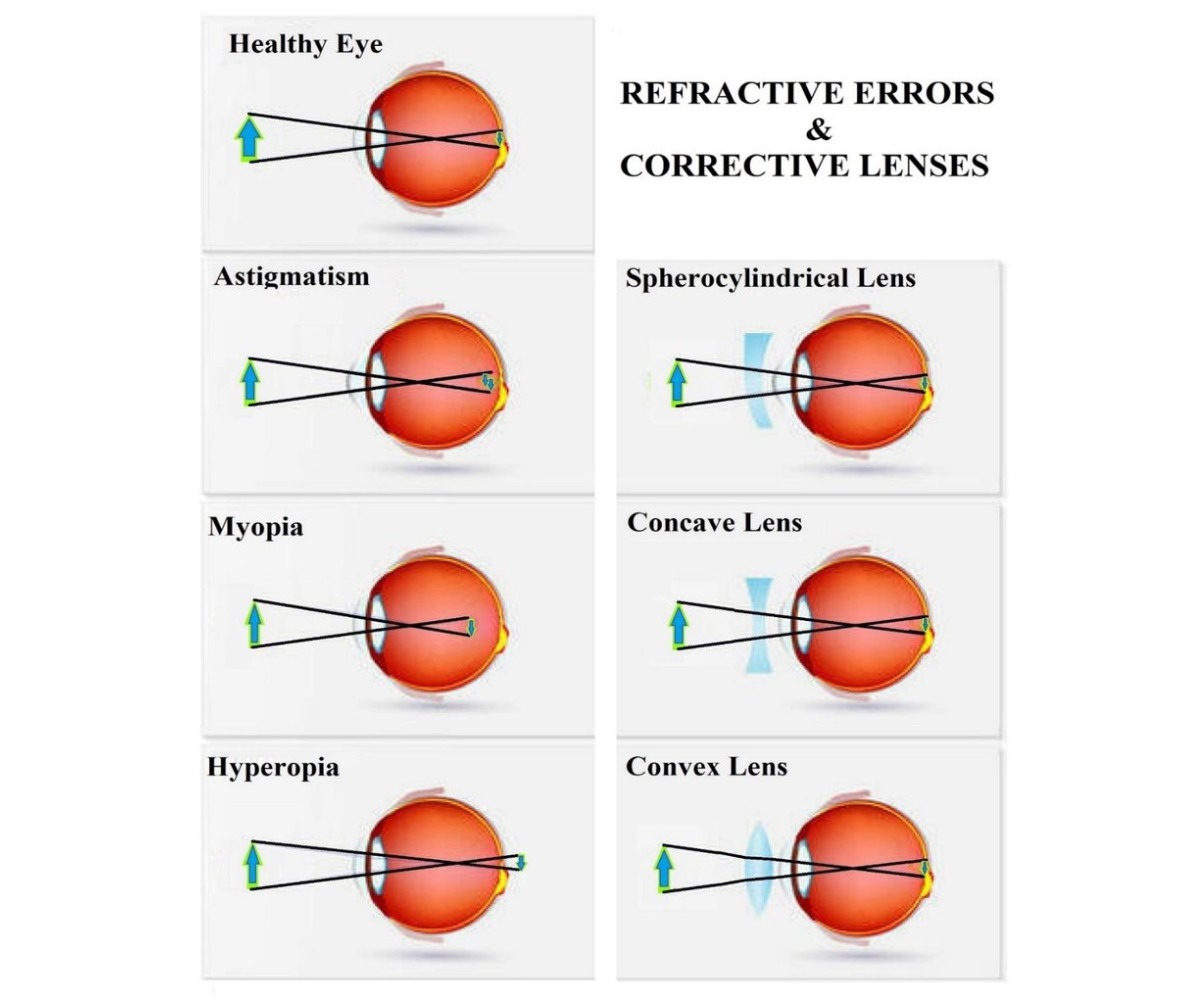Why Is My Vision Getting Worse?
We’ve all heard the saying, “eyes are the windows to the soul,” but what happens when those windows get foggy? Worsening vision affects millions of people, and addressing any issues early on is essential.
Read on to learn about its common causes and prevention and what you can do to keep your eyes healthy.
Common causes of worsening vision
Age, physical defects, eye strain, and much more could be probable causes of worsening vision. Much depends on an effective diagnosis from a professional eye doctor. Here are some common reasons why you may be experiencing poorer eyesight.
Aging and presbyopia
As we age, the lenses (the clear part of the eye that helps us focus) in our eyes become less flexible, making it harder for them to focus on objects up close. This condition is known as presbyopia.
If you’re in your forties and you find yourself holding books and newspapers at arm’s length to read, it could be a sign of presbyopia. This is a natural part of aging, and can be addressed by heading to an eye doctor to get a prescription for a pair of prescription glasses, or simply some reading glasses.
Refractive errors
These errors include an elongated or misshapen eyeball, a deformed cornea (the eye’s clear outer layer), or the natural aging of the lens in your eye. It might happen to you as you age or because of a condition like astigmatism, myopia, or hyperopia.
Myopia (nearsightedness)
This condition happens when the eyeball’s shape is too long or the cornea is too curved. People with myopia have trouble seeing far-away objects.
Hyperopia (farsightedness)
Are you straining your eyes to read this right now? If so, you might be experiencing hyperopia. This condition occurs when your eyes have trouble focusing on objects up close. If you’re farsighted, your eyeball’s shape may be too short or your cornea too flat.
Astigmatism
You might have astigmatism if you’re squinting to see what’s on the menu or struggling to make out street signs from afar. This condition occurs when the eye’s front surface is irregularly shaped, causing blurred or distorted vision near and far. Astigmatism can develop at any age and is often hereditary.
Cataracts
Aside from losing its flexibility, the lens in your eye could become less transparent as you age. The clouding in the lens is called a cataract. It’s a common condition that older adults develop. Cataracts can eventually lead to blindness if not treated.
Glaucoma
Glaucoma is a group of eye conditions that attack the optic nerve. That’s part of your eye that sends visual information from your eye to your brain. The culprit? Often, it’s high pressure in your eye. But glaucoma can still occur even if your eye pressure is normal and can cause vision loss.
Macular degeneration
You might have macular degeneration if you notice some darkness or an empty area in the center of your vision. This condition affects the part of the eye responsible for clear and sharp central vision. It can result in loss of sight.
Diabetic retinopathy
This occurs when high blood sugar levels damage the blood vessels in your retina. This condition can lead to blindness if left untreated.
Other factors contributing to worsening vision
While genetics can play a role, factors like excessive screen time can also contribute to developing or worsening the conditions mentioned. Reading for extended periods or in dim light may not have a direct link to common eye conditions, but it can contribute to eye strain.
Poor nutrition and hydration can also have a significant impact on your vision. Our eyes require essential nutrients to function correctly, but many people don’t prioritize healthy foods, leading to a deficiency in these vital nutrients.
Additionally, dehydration can cause dry eyes, which, over time, can contribute to worsening vision.
Certain medications can negatively affect eye health, as well. For example, antidepressants and cholesterol-lowering drugs have been linked to vision changes. If you’re experiencing these symptoms, talk to your doctor and ophthalmologist to see if there’s a solution.
Lastly, one of the most apparent causes of worsening vision is eye injuries or trauma. Whether it’s from a sport you play, a freak accident, or just everyday clumsiness, any damage to your eyes can have a lasting impact on your vision.
Prevent worsening eye conditions with early treatment
Don’t let vision troubles master you, be proactive and preserve your eye health. Here are some holistic options to keep your vision sharp for years to come.
1. Going for a comprehensive eye exam
Early diagnosis and treatment of eye conditions can help maintain overall vision health. A comprehensive eye exam can detect changes in your eye pressure, an important indicator of potential issues. An ophthalmologist can identify risk factors unique to each individual and recommend the best course of action to protect your eyesight.
2. Consider corrective lenses or surgery
Corrective lenses, whether glasses or contacts, are a reliable solution for many. For those with more severe conditions, surgery may be necessary. Early treatment is the key to preventing worsening eye conditions regardless of route. Don’t worry too much about the cost since your prescription eyewear may have several payment options.
3. Medications or other medical treatments
Many medications and other medical treatments can help manage glaucoma, macular degeneration, and cataracts. For example, prescription eye drops are available for glaucoma to decrease eye pressure.
Change your lifestyle to help your vision
One area you can focus on is your diet and nutrition. Incorporating foods rich in vitamins A, C, and E and omega-3 fatty acids can support eye health and potentially reduce the risk of developing vision problems. Think leafy greens, citrus fruits, nuts, and fish.
You can also start incorporating eye exercises and relaxation techniques into your routine. Some activities can strengthen your eye muscles and help your eyes work better together. Relaxation techniques like deep breathing or meditation, especially with closed eyes, can also reduce eye strain and help you feel calmer.
Finally, by managing chronic health conditions such as diabetes or hypertension, you can improve your overall health and see positive effects on your vision.
Our eyes are essential, keep them safe!
If you find yourself working in an environment where your eyes can get injured, one of the best things you can do is to wear the proper protective gear, whether goggles or a face shield.
It’s also essential to keep work areas well-lit and to take frequent breaks from activities that strain your eyes, such as staring at a computer screen.
The right pair of protective eyewear can make all the difference in high-intensity activities, such as sports. They will shield your eyes from UV rays and defend against potential injuries or hazards.
Or – if you’re a glasses-wearer who lives an active or adventurous lifestyle, you might want to consider opting for more durable lenses – such as polycarbonate, which can take more knocks and scuffs.
Manage chronic health conditions
Did you know that certain conditions can also put your eyesight at risk? Diabetes, high blood pressure, and autoimmune diseases are some chronic conditions that can affect your vision over time.
You can take steps to protect your eyes while managing your health. Regular eye exams, managing your medication correctly, and managing your blood pressure and sugar levels are vital strategies for keeping your eyes healthy.
Address worsening vision before it’s too late
As we age, our vision becomes more prone to wear and tear, and those minor annoyances can become big problems without proper care. Fortunately, taking care of our vision is easy to do with some lifestyle changes mentioned above, or by addressing them with corrective lenses such as prescription glasses or reading glasses.
It also never hurts to seek professional medical advice for any vision concerns.

Written by:
Phoebe Jade

